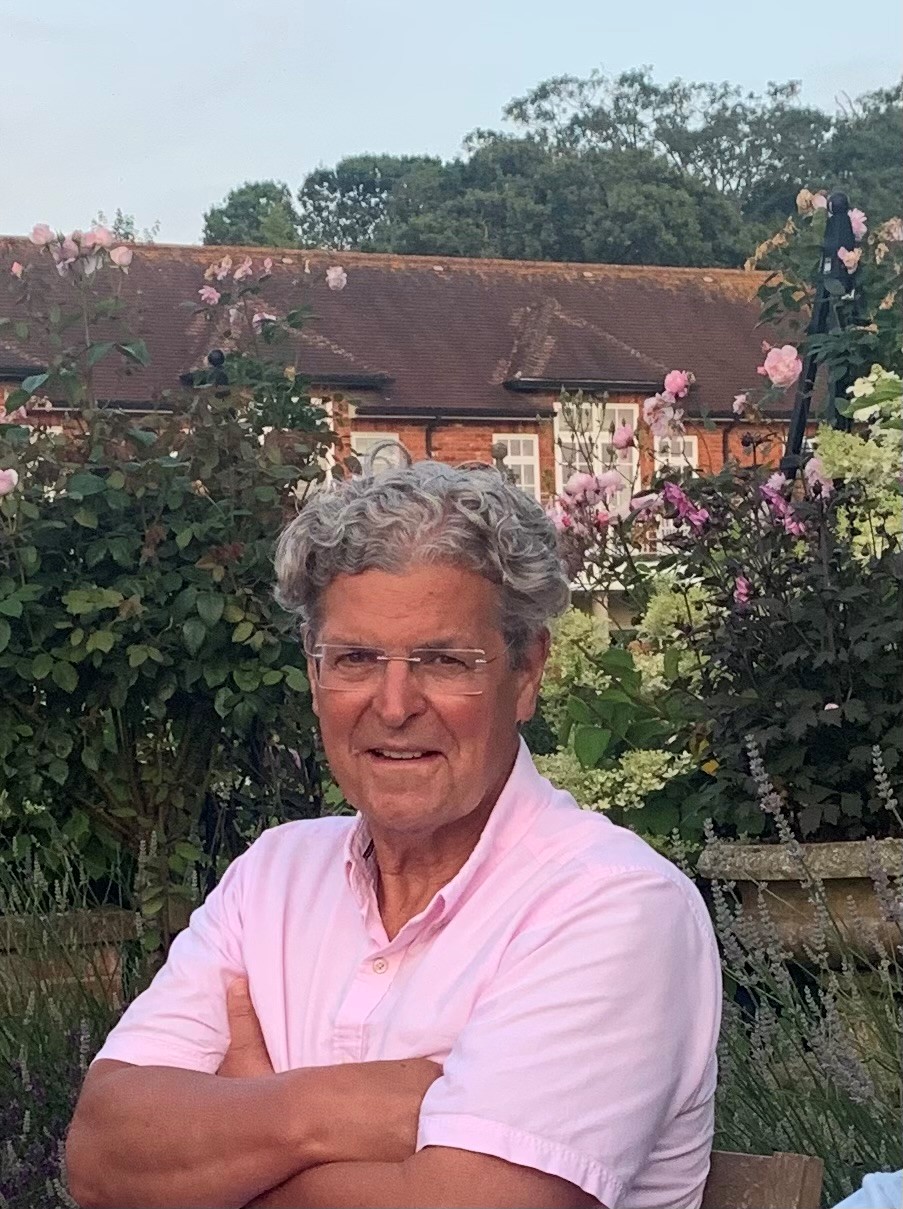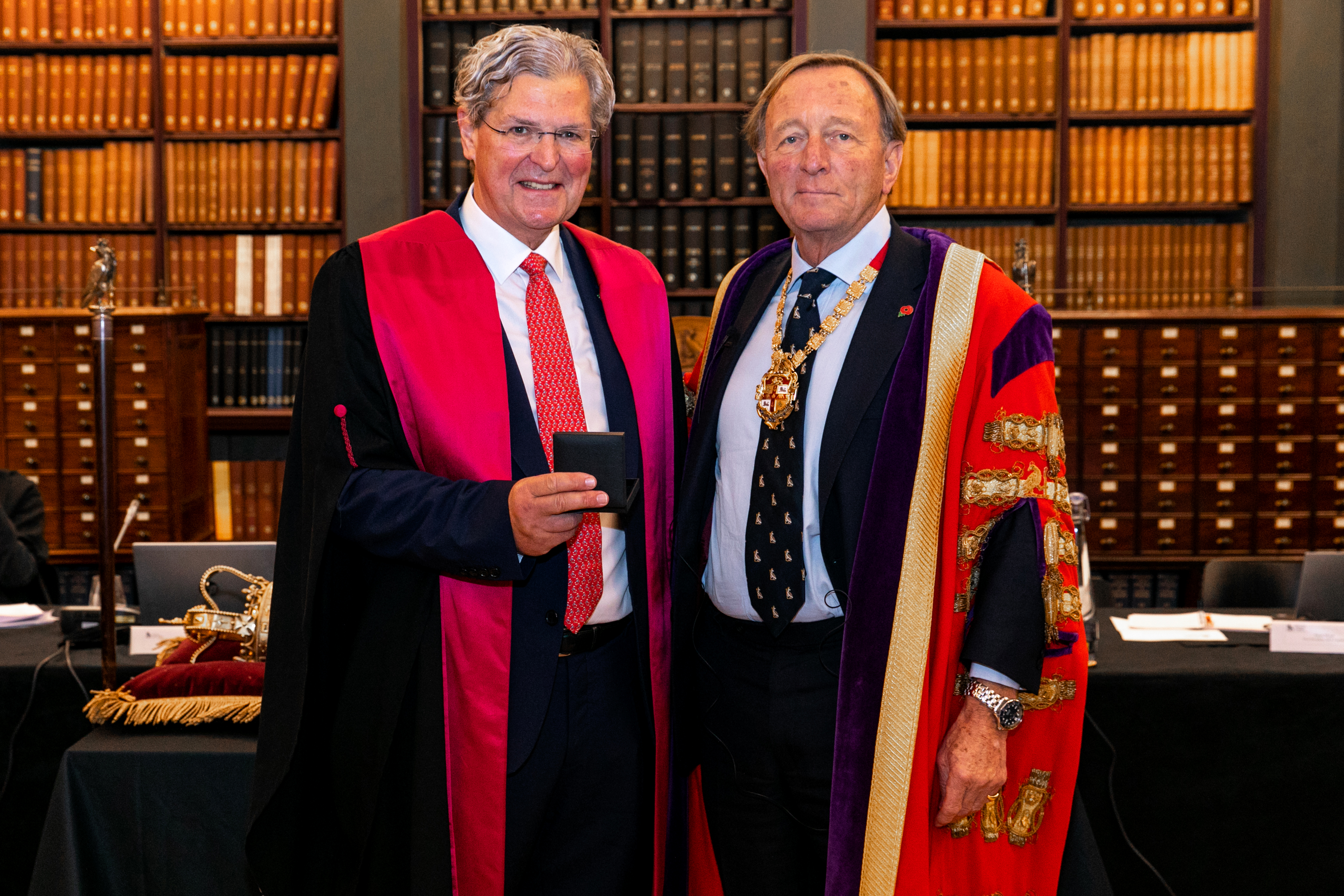
Myrddin Rees OBE FRCS (MBBS Medicine 1973) has many guises: a native Welsh speaker from a tiny coal-mining village in West Wales, an inspirational rugby captain who brought his team to a prestigious victory, and a pioneering liver surgeon who has transformed his field and saved an untold number of lives.
Growing up as the son of a coal miner and only speaking Welsh, Myrddin (Merv to friends) may have seemed an unlikely prospect to one day receive an OBE for liver cancer surgery. But speaking to him today, no one could doubt his commitment to his patients and his drive to push the boundaries of what’s possible in his field. What to others might seem like an impossibility, Merv sees as a challenge to overcome.
Starting with his dream of going to London to study medicine…
A new home and a new language
Going from Gwendraeth Valley Grammar School to Westminster Hospital Medical School was a shock, especially as Merv thought in Welsh and was constantly translating in his head. But rugby provided a welcome sense of familiarity. Despite coming from the “fly-half factory of Wales” as he puts it, Merv played fullback and became very involved in the medical school’s team.
Rugby was a big part of Merv’s life at medical school. In the Hospitals Cup final in 1974, a year after his own two-year tenure as captain of the team, Merv scored a nerve-wracking last-minute try to enable Westminster Hospital Rugby to win the prestigious hospitals cup for the first time.
“Three yards to go. It was like a film in slow motion. The adrenaline, the endorphins - everything came together. I took out Charlie Thorburn, a Scottish Rugby International, playing number eight for Guy's Hospital, and scored the try. We won 7-6.”
The community of the team, and the distraction the sport provided, helped Merv handle the high pressure of his medical training. But after a while, the young houseman was working 120 hours a week and almost quit the profession altogether.
Time out to reassess
Fortunately, a trip abroad offered some time to relax. And it also sparked some inspiration. When visiting a prominent neurosurgeon, Merv saw the man had a noticeable tremor in his hand. Merv’s first thought was “if he can be a neurosurgeon, I can be a surgeon”.
“I decided to go to St James’ Hospital in Balham and St George’s Hospital in Tooting for a bit of a change. It was tough, but it was the making of me. John Kirkham, a Westminster graduate and a leading upper gastrointestinal surgeon in his day, was my biggest mentor. If he liked you, he gave you an extremely hard time. He converted me from a very laid-back rugby player to a very focused surgeon.”
Merv soon got a position at the Ochsner Medical Center in New Orleans where he spent a few years doing research. Merv finds it interesting looking back and comparing progress in England with where they were in America. In England for example, doctors were working such long hours that every hospital at the time had a bar for them to unwind in at the end of the day. In America, that was unthinkable.
“At my first operation in the clinic in New Orleans, every surgeon came to see how I was getting on. ‘How’s the Brit doing?’, they would ask. So afterwards, when everyone was together, I offered to take them all to the doctors’ bar and buy them a beer. They looked at me in stony silence, eventually saying ‘but we’d all be struck off.’ It was a good point, because then I realised I was on call too!”
A new calling
The mortality of liver surgery back then was 25 per cent with patients frequently bleeding to death on the table. Merv saw this as one of the big challenges to solve in medicine. In 1986 he accepted a position back in the UK - Basingstoke, where a senior colleague, Bill Heald, was very supportive of Merv’s enthusiasm.
Bill is himself a world-famous surgeon renowned for his pioneering work in promoting total mesorectal excision (TME) in the surgery of rectal cancer. Perhaps aware of a potential clash of interest, Bill sent Merv to visit a liver surgeon he'd heard about in Bavaria.
“I worked for one week in Bavaria. I would be up at 05.30 in the morning and in the hospital from 06.00. We were in ITU rounds from 06.30 and in theatre by 07.30. We'd operate until midnight and then head to a bierkeller for a very large meal. It was the only meal I had because I couldn’t even ask where lunch was… The only German I knew was what to ask for during a liver resection. We did around 20 cases that week and I’d never been so exhausted.”
And it was a transformative experience. Merv found out how to operate on the liver with minimal blood loss, and immediately got to work setting up his own liver surgery unit to keep refining the process. All of a sudden, support started pouring in, with donations for vital equipment like the ultrasound machine.
“It’s not just me - it’s a huge team of anaesthetists, four other surgeons and a fantastic radiology team that does the diagnosis. There were massive steps where we just kept improving.”
Merv talks about his team in this article by Hampshire Hospitals NHS Foundation Trust.
As of today, they’ve done nearly 4,000 liver resections and have drastically improved the survival rates of patients. The average blood loss is now just 240ml and mortality is less than one per cent, compared to other major surgeries at four or five per cent. That’s a huge reduction from the 25 per cent mortality in the speciality when Merv started.
A pioneering approach
The progress was simply too unbelievable for a few people, especially considering the regional hospital location. Merv explains how doctor and journalist, James Le Fanu, wrote an article in The Telegraph at the time, reporting how "there is a young surgeon in Basingstoke who believes he can operate on the liver without blood transfusion, even on secondary cancer from the bowel."
“If this ever takes off, I’ll eat my hat,” is what Merv remembers the writer claiming.
These days, liver surgery is routine, and that’s largely thanks to the efforts of pioneers like Merv. His list of awards keeps growing:
- Royal College of Surgeons of Edinburgh – honorary degree
- Thomas Vice Most Outstanding Alumni of the Ochsner Clinic award
- University of Wales Trinity St David – honorary doctorate
- Queen’s New Year Honours list 2021 - OBE for services to liver cancer surgery
- Sir Clement Price Thomas Medal - awarded by the Royal College of Surgeons in England
Sir Clement Price Thomas was a pioneering Welsh thoracic surgeon, perhaps most famous for performing life-saving surgery on King George VI in Buckingham Palace in 1951. Since 1958, the Clement Price Thomas Medal has been presented in recognition of meritorious contributions to surgery. It was founded when Westminster Hospital staff donated 1,000 guineas the Royal College of Surgeons of England (RCS), to fund the award in memory of the surgeon, who served on the RCS Council between 1952 and 1964. Receiving the award has been very special to Merv.

Despite the success of surgery, many of Merv’s patients will still unfortunately die of cancer, and he reflects on how it has been a journey to accepting this. Merv takes comfort in knowing that he’s done everything he can for his patients and given them the best possible chance at recovery.
“We guarantee to do our best, even if it may not be enough. That’s all our patients want really. They want us to do what we can, to give them hope. We’re honest with our patients and tell them what we don’t know. All that matters is that we’re here to give them the best deal – anyone getting in the way of that will get trampled, as my rugby mates will tell you!”
Merv's motto:
“We guarantee to do our best, even if it may not be enough. That’s all our patients want really ... All that matters is that we’re here to give them the best deal – anyone getting in the way of that will get trampled, as my rugby mates will tell you!”